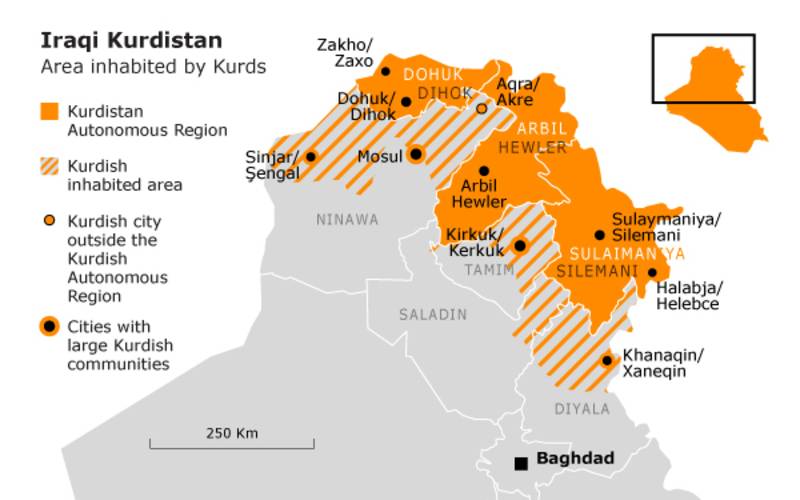Kurdistan says Iraq will need to shoulder the burden of cuts
Iraq’s central government in Baghdad will be responsible for meeting the production cuts set forth in the OPEC production deal without Kurdistan, according to Kurdish news network Rudaw. Kurdish officials have dismissed claims that the Kurdistan Regional Government (KRG) will cooperate with the Iraqi central government on production cuts.
“The Kurdistan Region will continue its oil exports as before and has not decided to abide by the OPEC accord to reduce the exportation of oil,” Dilshad Shaaban, deputy head of the energy and natural resources committee in the Kurdistan Parliament, said on Monday.
His remark comes as Iraq’s Oil Minister Jabbar al-Luaibi had claimed at a meeting in Egypt that the majority of international oil companies alongside the Kurdistan Region would commit to reduce oil exports in order to fulfill the OPEC accord.
“Kurdistan is within Iraq and we are in agreement,” al-Luaibi was quoted as saying at a meeting of the Organization of Arab Petroleum Exporting Countries, known as OAPEC.
Shaaban explained that “there is only one way through which the KRG will commit to reduce its oil exports, [and that’s if] it reaches an oil accord with Baghdad. But it is unlikely to happen.”
According to the November oil production and export report from the KRG, the region exported an average of 587.6 MBOPD.
OPEC member states agreed on November 30 to reduce production by 1.2 million barrels a day in an effort to lift the price. Iraq, OPEC’s second-biggest producer, pledged to reduce output by 210 MBOPD, or 4.5% of its total production.

Disagreement on oil nothing new for Kurdistan and Baghdad
Disagreements between the KRG and the central government in Baghdad over oil have seen the two governments in court in the past. Last year the U.S. Court of Appeals for the Fifth Circuit in New Orleans dismissed the KRG’s bid to overturn an earlier ruling against a planned sale of oil to an unidentified buyer in the United States.
Iraq’s federal government filed the lawsuit in a U.S. court in 2014 in order to halt the sale of 1 million barrels of oil from the Kurdistan region as part of the ongoing dispute between the two.







